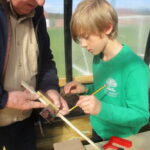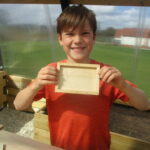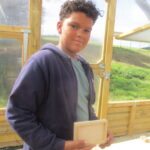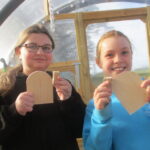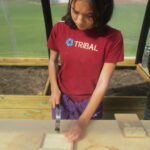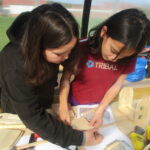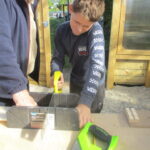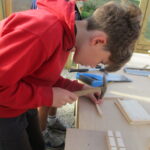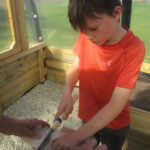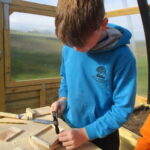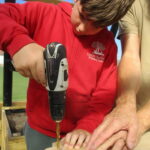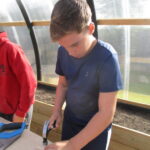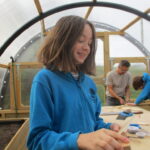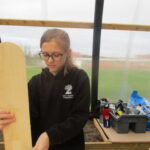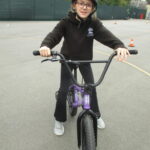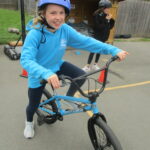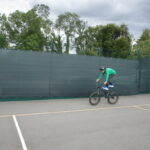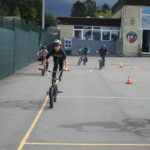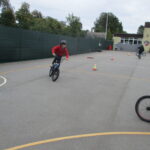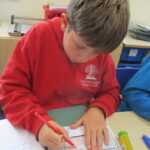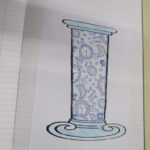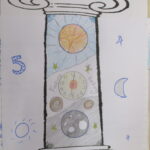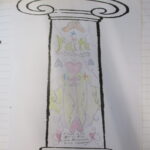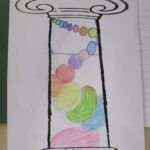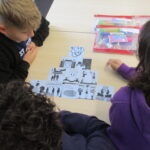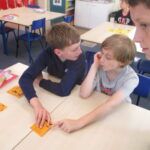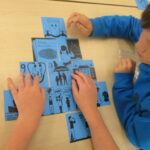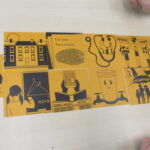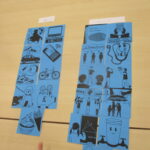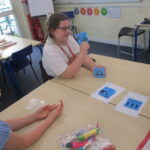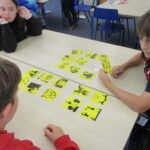What a busy, brilliant, and slightly sawdusty week we’ve had in Year 6! There’s been a real buzz of learning (and hammering!) as we’ve dived into some exciting cross-curricular activities – from history and DT to maths, English, and RE. Here’s a peek into what we’ve been up to…
History & DT: Digging into the Past (and Nailing It!)
This week, we’ve travelled back to the 1940s to learn all about World War Two air raid shelters, with a particular focus on the Anderson shelter. We found out how these shelters were designed to protect families during air raids – made of corrugated steel, half-buried in gardens, and built to be tough and sturdy. We explored their design, size, and the science behind their stability.
Armed with this knowledge, we put on our tool belts (not literally!) and began making our own scale model Anderson shelters. Cue saws, hammers, safety rulers and lots of measuring and sanding! We learnt how to:
- Use a saw safely – “stand behind the saw and let the saw do the work!”
- Mitre corners for neat joins
- Sand wood for a smooth finish
- Use a hammer with care (and pride – no thumbs were harmed!)
We owe a huge THANK YOU to Mr Trundle, our fantastic Site Manager, and Mr Hutt, our brilliant Chair of Governors, who have guided us every step of the way with their tools, tips, and tales. Their support has made this project even more special.
Article 29 – Education must develop every child’s personality, talents and abilities to the full.
Next week we’ll be adding the doors and roofs to our shelters – watch this space for the big reveal!
Maths: In Our Prime!
In maths, we’ve been sharpening our brains with some prime number power! We explored:
- What makes a number prime
- How to find prime factors
- Solving puzzles and problems using these special numbers
There’s nothing quite like that ‘aha!’ moment when you realise 29 really is a prime number…
Article 28 – Every child has the right to an education.
English: Letters from the Past
Linking with our WW2 theme, we’ve been diving into informal letters – specifically, letters written in role as evacuees during the war. We’ve explored:
- The features of informal letters
- How to use expanded noun phrases and prepositional phrases to add detail
- Inspiration from our fantastic class text Letters from the Lighthouse by Emma Carroll
We can’t wait to get writing next week – prepare for some powerful, emotional letters coming soon!
Article 12 – Every child has the right to have a say in matters affecting them.
Article 31 – Every child has the right to take part in cultural and artistic activities.
BMX Workshop: Flearning in Action!
One of the highlights of our week was an incredible BMX workshop led by none other than Mike Mullen, BMX champion and all-round inspiration. Mike didn’t just wow us with his skills – he also delivered a powerful message about the importance of having a growth mindset and the value of learning from failure, or as he calls it, “flearning!”
We took his words to heart, and then to the playground, where we had the chance to try some BMX moves ourselves. With every try, wobble, and laugh, we discovered the power of saying “I can’t do it… yet!” There were handlebar flips, surfing positions, Titanic poses, and more – but most importantly, there was courage, perseverance, and lots of cheering each other on.
Article 29 – Education must prepare children for responsible life in a free society.
Article 15 – Every child has the right to meet with other children and join groups or organisations.
RE: Pillars of Faith
In RE, we’ve been learning about the Five Pillars of Islam and how each one helps Muslims show commitment to their faith. From prayer to charity, we explored the meaning behind each pillar and then got creative by designing our own representations of a chosen pillar. Some were colourful, some were symbolic, all were thoughtful.
Article 14 – Every child has the right to think and believe what they choose and also to practise their religion.
In PSHE, we’ve been thinking deeply about the difference between *needs* and *wants*. After sorting a range of cards into the two categories, we were surprised to see that different groups in the class had made different choices—sparking some brilliant, respectful discussion and debate! We talked about how people’s experiences and circumstances can shape what they consider essential, and it really helped us to appreciate other points of view. This links closely to our Rights Respecting Schools work, particularly Article 14 – every child has the right to think and believe what they choose. We’ve been learning how to listen to others with empathy and explore ideas together in a thoughtful way.
We’ve had sawdust on our jumpers, prime numbers in our heads, BMX bikes on the playground, and evacuee letters in our hearts – and we wouldn’t have it any other way.
Thank you for your continued support – and do check in next week to see how those Anderson shelters turn out!
Have a lovely weekend!


